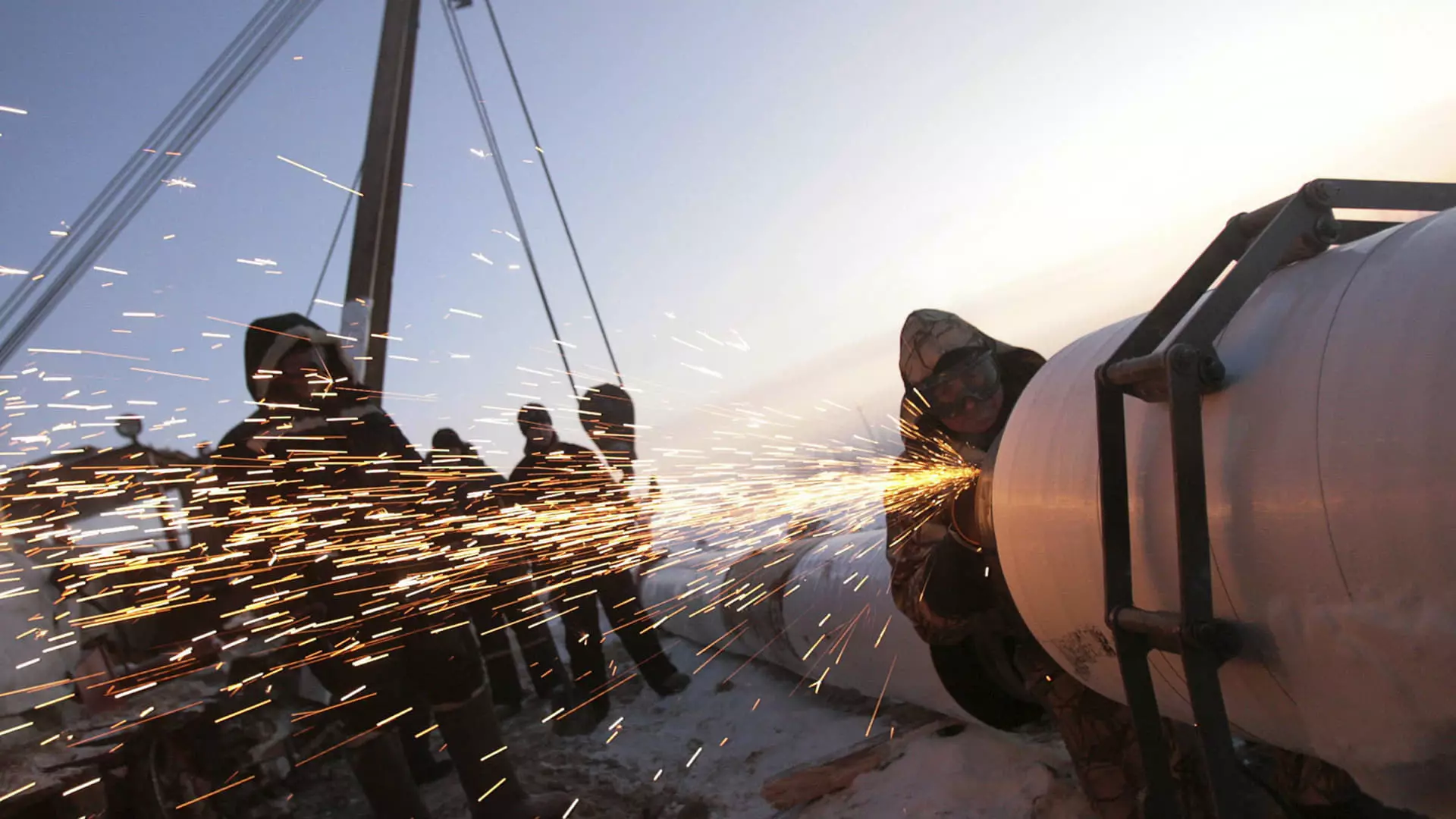The intricate dynamics of European energy supply have undergone significant changes in recent years, particularly following geopolitical tensions stemming from the ongoing conflict in Ukraine. This article delves into the currents of natural gas supplies from Russia’s Gazprom, the implications of fluctuating energy demands in Europe, and the future of energy relations between the EU and Russia.
As of late, Gazprom, the Russian gas titan, maintained a consistent output of natural gas flowing through Ukrainian pipelines to Europe, despite uncertainties clouding the situation. However, the recent decision by the Austrian energy firm OMV to terminate its gas imports illustrates the fragility of these relationships. Moscow’s abrupt notice to cut off gas supplies to OMV on a Saturday serves as a stark reminder of the looming instability in energy markets influenced by external pressures and historical agreements.
The impending closure of the Urengoy-Pomary-Uzhgorod pipeline—a crucial artery for gas moving to Central Europe—particularly accentuates the transitional phase for Russian gas exports and the broader European energy market. With Kyiv opting not to extend the transit agreement, the future of Russian gas flow to various countries, including Slovakia and the Czech Republic, is uncertain. This decision highlights Ukraine’s strategic position as both a transit country and a victim of the ongoing conflict, indicating a potential shift away from reliance on Russian energy.
The Impact of Arbitration and Financial Disputes
OMV’s arbitration award against Gazprom, which resulted in a 230 million-euro judgment, reflects the growing tensions not just between nations but also within the international energy trade framework. By attempting to offset its financial recoveries against its gas invoices from Gazprom, OMV opens a Pandora’s box of complications, raising critical questions about contractual integrity and the reliability of such energy supply agreements moving forward.
This case encapsulates the broader struggles not only for Austria but for European nations grappling with energy security. The reliance on Russian gas, which once constituted a substantial portion of Austria’s energy mix, has dramatically decreased following the geopolitical fallout, further complicated by invasion-related sanctions and the strategic flips by the EU to diversify its gas sources.
The decline of Russian energy exports to Europe has ushered in a new era characterized by energy diversification. As Russian gas supplies wane, nations have increasingly turned to new partners. The emergence of Norway, the United States, and Qatar as suppliers of natural gas to Europe has reshaped the energy market landscape. Each of these nations provides varying degrees of stability, pricing, and contract frameworks that are becoming more attractive as European nations seek alternatives to Russian gas.
The closure of the Yamal-Europe pipeline and the catastrophic destruction of the Nord Stream infrastructure have only accelerated this shift, illustrating the vulnerabilities inherent in relying on a single source for energy needs. The increasing exports from the United States through liquefied natural gas (LNG) channels are particularly noteworthy, as Europe enjoys an influx of energy supplies while striving to reduce its historical dependency on Russian gas.
The Broader Economic Implications
The consequences of reduced Russian gas imports extend beyond energy supply. The financial implications for both Gazprom and Western European nations are significant, adversely impacting national economies. Russia, which once supplied over 35% of the continent’s gas, now finds its market share considerably diminished. As reported, only two countries, namely Hungary and Slovakia, are set to remain substantial customers for Gazprom, with alternative routes through Turkey emerging as another point of contention in the region’s energy activities.
The volatility accompanying these energy supply changes further exacerbates economic instability, complicating energy pricing and raising concerns about energy security across Europe.
As energy patterns shift and relationships realign post-Ukraine invasion, it remains essential for European nations to cultivate robust and diversified energy portfolios. The lessons learned from reliance on Russian gas underline the importance of strategic partnerships and market flexibility. It is imperative for Europe to navigate these tumultuous waters with foresight and adaptability, aiming to build an energy framework resilient to geopolitical upheaval while ensuring energy security for its citizens. As we advance, monitoring the developments surrounding Gazprom and its diminishing influence will be essential to accurately assess the trajectory of energy supplies in Europe and beyond.

Leave a Reply